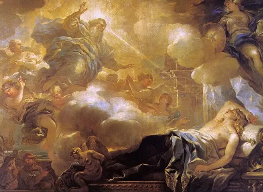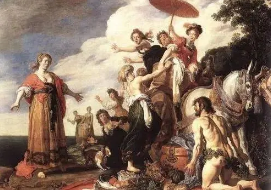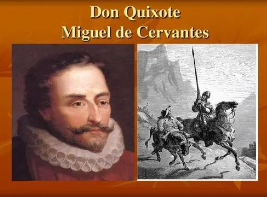The 80 most Common Allusions to Western Literature are so useful(2)
10 min read
This week we continue with these literary allusions;21 Salon “Salon” is a translation of French, it was originally Italian, 17th century into France, originally for the Louvre gallery name. Later it came to mean the grand parlour of the French upper class. At that time, the famous people of Paris (mostly the ladies) used to make the parlour into a famous place of society. Most of the people who come and go here are novelists, poets, painters, dramatists, philosophers, musicians and critics. They have the same interests. They gather together to write poems and paintings, enjoy elegant music, or have long discussions on various issues of interest, and express their opinions freely. Later, people called this form of gathering “salons”. Authentic “salons” have the following characteristics: to be held regularly; The time should be at night; Not too many people. Nowadays, people often use the word “salon” to describe certain activities when writing articles, such as “literary salon”, “music salon” and so on.
22 Round Table From the legend of the ancient English hero King Arthur and his knights of the Round Table. The round table has no chief seat, symbolizing that the knights sitting around the table are in an equal position. The meeting held at the round table is called the Round Table. All parties to the negotiations are equal. 1. Knock, and the door will open: Luke: Jesus said to his disciples, “Ask, and it shall be given you: seek, and ye shall find; Knock and it will be opened to you. For everyone who asks receives, and everyone who seeks finds.” It means that as long as you work hard, you will get what you want.
The 23 Windsmen reap the storm.
Hosea (The Old Testament) : When Hosea the prophet of Israel saw that the people of his land worshiped the calf instead of believing in the Lord God, he rebuked them, saying that they would surely come back to haunt them. What they plant is the wind, and what they reap is the storm. A metaphor for the consequences of the doer.
Bone of bones, flesh of flesh.
It’s from the Bible. God took a rib from Adam and created the woman Eve and married them. Adam said, “This is bone of my bones and flesh of my flesh. She may be called my wife, because she was taken from her husband. For this reason a man shall be united to his wife, and they shall become one flesh.” After the metaphor refers to the relationship between the flesh and blood, but also to spend a lot of effort and energy to get results and the most beloved things.
The body of dust.
It’s from the Bible. When Adam and Eve ate from the Tree of Knowledge of Good and evil, God was driven out of the Garden of Eden. God’s curse: Man must suffer from the earth. The fields will be full of thorns and thistles, and men must work all their lives to grow crops that will feed them until they return to the earth. Man is dust from the earth, and to dust he returns when he dies. Therefore, it is often called the body of dust.
26 Know Yourself.
It comes from Greek mythology. Ovid’s Kama Sutra contains these words: “Apollo says,” Bring your disciples quickly to my temple, where they may read the inscription known all over the world: Mortal, know thyself. “The ancient Greeks believed that to know oneself was to be wise, to be blessed and to avoid evil.
And drank the water of the forgotten stream.
Forget river is a river in the underworld in Greek mythology. When a person dies, the spirit of the dead falls to the underworld. As long as he drinks the water from the river, he will forget everything in the past, so it is called forget stream. A metaphor for forgetting things that should not be forgotten.
28 lovely, home is best.
It’s from Aesop’s Fables. Zeus got married and invited all the animals to attend. Only the tortoise future. Zeus asked him why he did not come to the feast. “Home is lovely, home is the best,” said the tortoise. Zeus was very angry and made him carry his house on his back. Many people would rather live a simple life at home than live a luxurious life as guests.
Cast away all hope, ye that come in.
It’s from Inferno, the Divine Comedy by Italian poet Dante. The poet described a sad scene at the gates of hell. On the door of hell is written: “You who entered here, leave all hope behind!” The latter metaphor is a hopeless situation.
30 Untasted grapes are always sour.
It’s from the Krylov Fable. When the fox saw the ripe grapes, his eyes and teeth shone, but he could not eat them. He said angrily, “Well, although they look good, they are not ripe yet! There is not one that is not sour.” Satirizing someone for not getting something good, and saying it is bad, in order to balance the mind.
31 Return to the old wooden basin.
From Pushkin’s fairy tale poem “The Fisherman and the Goldfish”. The fisherman caught a talking goldfish in his net. He put it back into the sea. The fish made a promise. The fisherman’s wife forced her husband to ask for more and more from the goldfish until he wanted the goldfish to be his servant. The goldfish could not bear it anymore and finally took back all the things given to the old woman. She returned to the old broken wooden basin. The meaning is similar to “drawing water from a bamboo basket in vain”.
Where is good, where is the motherland.
From the ancient Greek writer Aristophanes comedy God of Wealth. Metaphorically mercenary, even at the expense of abandoning the motherland. It also describes someone who has no principles.
Armed to the teeth.
In the past, the coast of South America, especially the North Coast, was infested with pirates. The pirates were fierce and had a knife in their mouths in addition to two weapons. Hence the allusion. A country that is heavily armed or armed to the limit.
News by the vine.
On May 24, 1844, Samuel Morse in the United States invented the telegraph, and many companies began to put up wires, but limited to the scientific level, the wires were always stretched like a grapevine, and someone joked that it was like a grapevine. A secret message from a variety of informal sources.
Job Job (Old Testament) : Job was a rich man who feared God. The devil Satan did not believe in his piety to God, so he urged God to allow him to test Job. When God acquiesced, he inflicted disaster on Job many times. In the face of the disaster, Job fell on the ground and bowed down to God, saying, “Naked I came, and naked I shall go; God’s gift, when God takes back, God’s name forever.” So God brought him back from his misery and granted him double favor. Then he used his name as a metaphor for the most enduring person. Job’s wife was so miserable that she persuaded him to give up his faith. Later generations used “Job’s wife” as a metaphor for a foolish, short-sighted woman.
36 MUSES “Muse” is a common name for nine goddesses of literature and science in Greek mythology. They were both daughters of the chief God and the Goddess of memory, and both were born and lived in Peoria on Mount Olympus. Headed by Apollo, the god of music and poetry, they were in charge of history, tragedy, comedy, lyric poetry, dance, epic poetry, love poetry, carols and astronomy. Poets and singers of ancient Greece appealed to their MUSES for inspiration because of the spring of Castalia under the mountain of Parnassus, where they often visited. Later, people used the word “Muse” to describe literature, writing, inspiration, etc., when writing articles.
37 Pygmalion Pygmalion was the king of Cyprus in Greek mythology. He hated women and decided never to marry. He carved a beautiful ivory statue with magical skills and fell in love with her. He fondled her as he would his own wife, dressed her up, and begged God to make her his wife. Aphrodite, the goddess of love, was so moved by him that she gave life to the statue and married them. Pygmalion effect: Later used in educational psychology, also known as the expectation effect Rosenthal effect: The analogy is that teachers have different expectations for students, and apply different methods to them, so students will be affected differently.
Oedipus The son of Laius, king of Thebes, and Iost, queen of Thebes. The oracle said, “The king’s son will kill his father and marry his mother.” So the child was thrown into the mountain at birth, but was saved and grew up. Once, he accidentally killed an old man, who was his biological father. Later, he traveled to Thebe to remove the sphinx, was proclaimed King of Thebe, and married the former king’s wife, who was his birth mother. My destiny has come true. Blinded by his mother’s suicide, he died in a forest sacred to the Nemesis near Athens.
39 Aetna Aetna was a giant and hero in Greek mythology, the son of Poseidon and Gaia, the god of the sea. His power comes from Mother Earth, as long as the body does not leave, the power is infinite, invincible; But if the body is away from Mother Earth, it will lose its ability to survive. Later, Aetna was shot dead in the air by Hercules, the greatest hero of Greek mythology. Because Antai is a giant that loses its power when it leaves the earth mother, “Antai” is often used to describe writers, poets and revolutionary parties as unable to be divorced from the people when writing articles.
Forty Sisyphus Sisyphus was punished by the gods, who told him never to stop pushing a heavy boulder up the hill. When Sisyphus pushed the boulder to the top of the hill, it rolled unstoppably down the hill. So Sisyphus pushed the stone up the hill again and again.
Forty-one Medea In Greek mythology, the daughter of the king of Colchis, who helped Jason obtain the Golden fleece. When she ran away from the Argoo ship with Jason, and saw her father pursuing her, she cut the body of her brother into pieces and threw them into the sea. Her father was too busy collecting bodies to catch up with them. A few years later Jason had a change of heart and married a new wife. She told her son to give Jason’s new wife a new dress covered with a phosphorescent poison. The new wife was burned to death as soon as she wore the dress. Medea killed her two children with her own hands and took their bodies to Athens. The King of Athens gave her a refuge. A metaphor for a sinister, poisonous woman.
42 Don Quixote Spanish author of the novel of the same name. He was an old, thin, ridiculous little country nobleman who, fascinated by chivalry, wanted to become a knight and do something spectacular. And ended up doing a series of ridiculous things. It is a metaphor for those who are divorced from reality, indulge in fantasy, and thus make wrong judgments, blindly reckless, ridiculous people. Such behavior is called Don Quixote behavior.
43 Contemporary Abagorn Abagorn is the main character of the Mauriere comedy The Miser (also known as the Niggard). He was a suspicious man, and money was his life. He would not even give you a good morning, but lend you a good morning. Abagorn is a famous typical image in the world literature, together with Grandet (Balzac “Eugenie Grandet”), Shylock (Shakespeare “The Merchant of Venice”), Chichenkov (Gogol “Dead Souls”) three images called the “four misers”.
44 The generation of Hamlet Hamlet is the hero of Shakespeare’s tragedy of the same name. His father was poisoned by his brother. To get revenge, he pretended to be mad as a cover. However, due to excessive prudence, they delayed again and again, and finally ended up in ruin. It’s a metaphor for a person who hesitates, doubts, delays in taking action and misses opportunities.
45 The Princess and the Pea From the Danish Hans Christian Andersen fairy tale of the same name. A princess can sense a pea under 20 layers of cushions and 20 layers of eiderdown. Satirize those delicate, fragile ladies.
46 Napoleon at Waterloo In 1815, Napoleon led 120,000 troops to defeat the anti-French forces at Waterloo in southern Belgium. Napoleon was imprisoned on the Atlantic island of St. Helena. Until his death in 1821. Because of the defeat at Waterloo, Napoleon never recovered from his failure, so this is a metaphor for the end of the hero.
47 A Faustian figure Faust originally referred to a German alchemist of the 15th and 16th centuries. The legendary Faust was a man of great learning, magic, and hard work. The German poet Johann Wolfgang von Goethe wrote Faust, a long poem play. In the poet’s pen, Faust overcame the temptation of the devil Morphester in every possible way, overcame setbacks and struggled, until the last moment of his life he was still eager to fight for freedom and survival. A metaphor for a man of great learning, magic, strange abilities and insatiable pursuers.
48 Ascetic monks.
Originally was a monk in some Indian religions to “ascetic” as a means of practice. The word “ascetic” originally means “heat” in Sanskrit. Because of the hot climate in India, religious believers took heat as the main means of ascetic practice. Metaphor for practice.
49 Miss Sour.
From the Russian writer Pomialovsky’s novel “The Happiness of the Little Citizen”. The heroine Lianochica is a shortsighted, spirit empty “Miss Gold”. As a result of the lovelorn and become worried, painful sad “Miss Sour”. After the metaphor of affectation, posturing woman. It also refers to a person who is short-sighted, vulgar in thinking, or emotionally fragile and moody.
Fifty men From the Russian writer Chekov’s novel of the same name. Belikov, the little official, was eccentric. Even when he went out on a sunny day, he had to wear rain shoes, a cotton coat and an umbrella. He was afraid of change, and whenever something new appeared, he would shake his head and say, “Don’t make any trouble.” He lived as if in a condom, isolated from the world. Therefore, this phrase has become a conformist, conformist synonym. A person who is afraid of anything new and of change.






